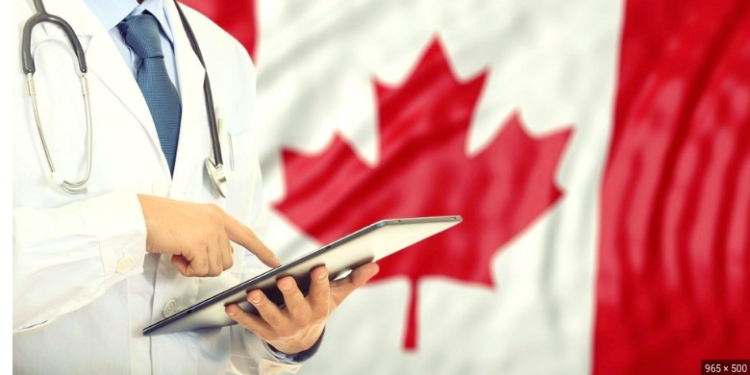In Canada’s Budget 2023, new expenditure on healthcare was highlighted as a top priority.
As healthcare is a provincial/territorial responsibility, the provincial/territorial governments have asked the federal government for more funding to alleviate the strain on the system caused by labour shortages and lack of funding prior to the COVID-19 pandemic (which exacerbated the situation).
The ageing population of Canada places additional strain on the country’s healthcare system. The 2021 census reveals that there are 861,395 Canadians over the age of 85. There are an additional 2,1 million people aged 75 to 85. This bodes well for a low unemployment rate and a high demand for qualified immigrants in the healthcare sector, but it also indicates that Canada’s healthcare system requires additional funding.
In addition to existing commitments, the government announced in early February of this year that it would spend nearly $200 billion over the next ten years on healthcare in Canada. This includes $46.2 billion in funding allocated to provinces and territories, as well as additional Canada Health Transfer measures, which are bilateral agreements with each province and tailored to their particular requirements. Budget 2023 provides more information on how money will be spent.
Dental services for Canadians and immigrants
Budget 2023 respected the accord between the Liberal government and the NDP (New Democratic Party) to establish a national dental plan for uninsured Canadians. The budget proposes $13 billion over five years and $4.4 billion annually for the Canadian Dental Care Plan’s implementation.
In Canada, dental care has never been covered by provincial healthcare programmes and is frequently unaffordable for those with a low income. According to the Canadian Dental Association, annual per capita spending on dental services in Canada is approximated at $378.60.
According to the budget, the new plan would provide dental coverage to uninsured Canadians with family incomes of less than $90,000 per year, with no co-payments for those with family incomes of less than $70,000. The plan will begin to be implemented in 2023, but details regarding eligibility for permanent and transitory residents, as well as a start date, have not yet been announced.
Children of uninsured parents have already benefited from the Canada Dental Benefit, which provides eligible parents or guardians with direct, up-front, tax-free payments to cover the cost of dental services for children under 12 years of age.
Other healthcare costs
Several additional measures were proposed as part of the budget’s healthcare plan. $158.4 million will be allocated over three years to support the implementation and operation of 988, a suicide prevention and mental health crisis support hotline. This would commence on 30 November 2023.
In December 2022, the Canada Community Health Survey reported that 1.5% of immigrants and 3% of the Canadian-born population had suicidal ideation in the previous year.
In addition, the Budget proposes $36 million over three years for the renewal of the Sexual and Reproductive Health Fund.
This fund supports community-based organisations that assist vulnerable populations, including newcomers, in gaining access to abortion and other sexual and reproductive health care information and services. Abortion is legal in Canada, and all women, regardless of immigration status, have the freedom to choose.
Finally, the Budget includes a proposal for $10 million over two years to support ParticipACTION’s Let’s Get Moving Initiative, which seeks to increase daily physical activity through national programming.
Healthcare for Canada’s permanent and temporary residents
All Canadian permanent inhabitants are eligible for free healthcare in their home province. This covers the majority of routine and emergency medical expenses. Generally speaking, provincial health care systems do not cover eye care or spectacles, dental care, prescription medications, or ambulance services.
In some provinces, however, there may be a three-month waiting period between obtaining permanent residency and becoming eligible for a provincial health card. The province issues health certificates to Canadians and permanent residents who have lived there long enough to be considered residents.
As provincial healthcare regulations differ, so do eligibility requirements for temporary residents, and it is recommended that temporary residents of Canada obtain private health insurance.














































